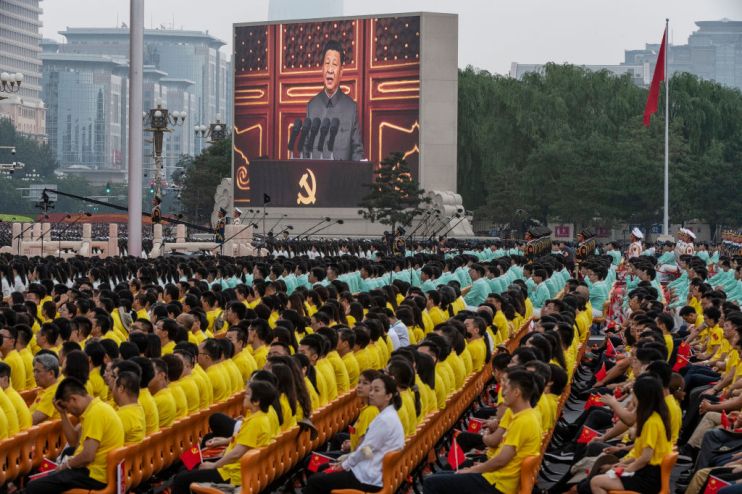Western allies cannot allow China to fraternise with the Taliban

The swift demise of Afghanistan has dominated every headline. Twenty years of aid, support and work towards political stability wiped out in a mere nine days. This will only spell the start of the atrocities — the return of female oppression and a crack down on all who aided Western countries are already reemerging.
As if this was enough of a geopolitical disaster, enter China. Guided by pragmatism over principles, Beijing is more than willing to ignore the domestic issues of a country, whether they are human rights violations, political coups or religious wars, as long as that country can provide them with some financial gain. It has a one-track mind: How can it use countries to attain the highest output of economic capital. To China, the situation in Afghanistan isn’t a debacle, it’s an opportunity to gain access to a shining mountain of untapped economic potential. If China’s siren song is sweet enough for the Taliban, it could threaten to unbalance global trade.
The ideological war of Communism vs. Democracy being waged between the US and China has taken a dramatic swing in Chinese favour these past weeks. America is seen retreating, a mere shadow of the international peacekeeper it once claimed to be. And China, not wasting any time, has already met with the Taliban co-founder, Mullah Abdul Ghani to assure them that China is ready to move ahead in good relations.
As a country enveloped by political instability and economic fragility, Afghanistan has an enormous dependence on foreign aid. For example, in 2019 the British government sent £292 million to Afghanistan, making it the third largest recipient of British aid in 2019. Despite this, Afghanistan’s annual GDP only contributes 0.02 per cent to the world economy, and according to a report from the US Congressional Research Service, in 2020 90 per cent of Afghans were living below the poverty rate of $2 a day. Why, then, should the West be so concerned by a Chinese-Afghan alliance? The answer is simple: rare minerals.
Despite this country’s abysmal economic record, Afghanistan is sitting on an estimated $1-3 trillion worth of rare minerals, including gold, copper, cobalt and rare earths. These substances are essential in everything from electric cars to aeroplanes to defence weapons. Around 35 per cent of all global rare earth reserves are already located in China. If China gains access to the Afghan reserves, it will be in clear stead to corner the market.
This would wreak havoc on global trade. It is no secret that China is willing to exploit and threaten other countries in order to achieve its own political agenda. In 2019, during the US-China trade war, China threatened to cut off its rare earth exports to the US, jeopardising swathes of tech and defence production. Imagine a world where China controls the vast majority of rare minerals. A country condemns Chinese actions or supports an enemy of China. Sanctions? Tariffs? Complete economic exclusion? Chinese power would hardly quiver with fear.
Mining of such rare minerals is hugely expensive, beyond the limited budget of a low-income country like Afghanistan, however China has more than enough funds to support such an operation. The Taliban, currently consumed with its foreign affairs and security risks, may see Chinese involvement as an asset. But they should beware. In 2017 Sri Lanka too saw Chinese investment as a saving grace, but when the government could not pay off its debt to Chinese companies, it was forced to hand over one of its most strategic ports to Beijing.
Gaining access to Afghanistan would also open up a whole new world of trading routes for China, allowing it to further its Belt & Road Initiative and further its attempt to assert China at the center of global trade. The Wakhan corridor will become an essential trading route, granting China access to the Middle East. It would give Beijing the opportunity to cast influence over a host of unstable and corrupt regimes, vulnerable to the lure of Chinese investment. Chinese influence in Iran increased significantly after the signing of the 25-year cooperation plan with Tehran. In Dubai and Saudi Arabia, Chinese tech companies have managed to be involved in the most important technological projects in the region, including Saudi Arabia’s National Transformation Programme 2030.
The focus for Western governments right now must be the evacuation of all those who served and helped the West. But we cannot ignore the enormous trade stability threat that the Chinese-Afghan relationship poses. As China steps ever closer to becoming the world’s leading economy, we must proceed with caution and ensure trade stability remains intact. This can be achieved by maintaining good relationships with the countries surrounding Afghanistan, thereby creating a buffer zone against further Chinese expansion. The UK should focus on its relationship with the UAE, where predictions for mutual trade of services and goods is at £25 billion for 2022.
Moving forward, if China continues to fraternise with the Taliban, a known extremist Islamist organisation, the West must retaliate with more than condemnation. Sanctions and tariffs will be the first step, but if this can be reinforced by a global united front, then there may still be a chance to contain the threat of China.